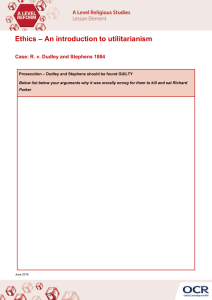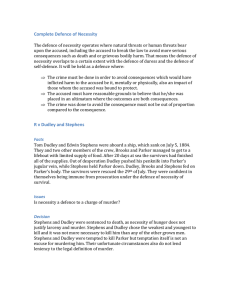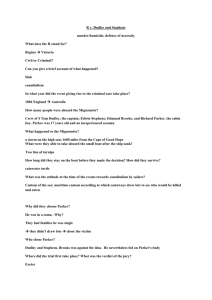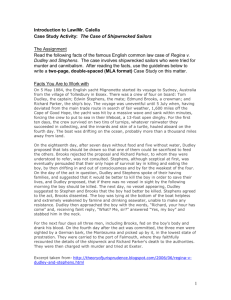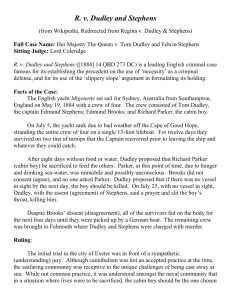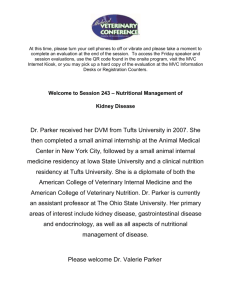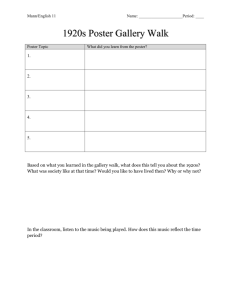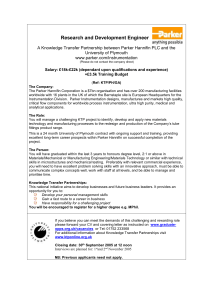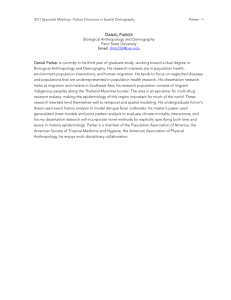R v. Dudley and Stephens Case Brief: Necessity Defense
advertisement
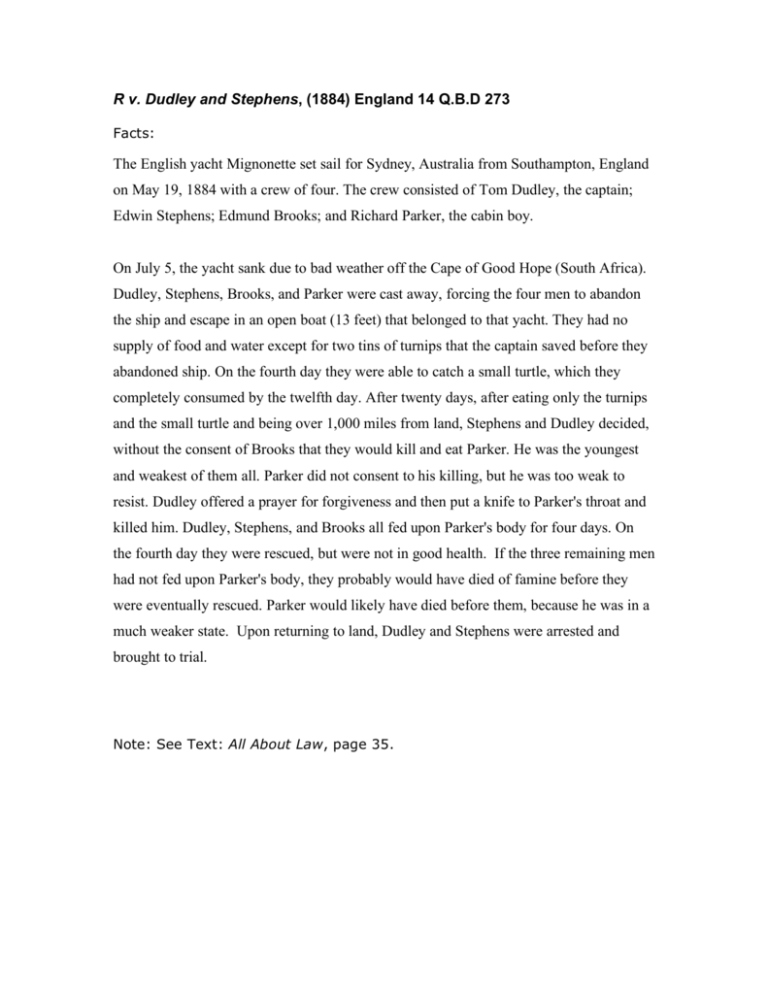
R v. Dudley and Stephens, (1884) England 14 Q.B.D 273 Facts: The English yacht Mignonette set sail for Sydney, Australia from Southampton, England on May 19, 1884 with a crew of four. The crew consisted of Tom Dudley, the captain; Edwin Stephens; Edmund Brooks; and Richard Parker, the cabin boy. On July 5, the yacht sank due to bad weather off the Cape of Good Hope (South Africa). Dudley, Stephens, Brooks, and Parker were cast away, forcing the four men to abandon the ship and escape in an open boat (13 feet) that belonged to that yacht. They had no supply of food and water except for two tins of turnips that the captain saved before they abandoned ship. On the fourth day they were able to catch a small turtle, which they completely consumed by the twelfth day. After twenty days, after eating only the turnips and the small turtle and being over 1,000 miles from land, Stephens and Dudley decided, without the consent of Brooks that they would kill and eat Parker. He was the youngest and weakest of them all. Parker did not consent to his killing, but he was too weak to resist. Dudley offered a prayer for forgiveness and then put a knife to Parker's throat and killed him. Dudley, Stephens, and Brooks all fed upon Parker's body for four days. On the fourth day they were rescued, but were not in good health. If the three remaining men had not fed upon Parker's body, they probably would have died of famine before they were eventually rescued. Parker would likely have died before them, because he was in a much weaker state. Upon returning to land, Dudley and Stephens were arrested and brought to trial. Note: See Text: All About Law, page 35. R v. Dudley and Stephens, (1884) England 14 Q.B.D 273 Procedure: The jury issued a special verdict. They found that there was no greater necessity to kill Parker, than there was to kill any of the others. However, the jury was unable to decide whether the killing of Parker was indeed a felony. Issue: Are Dudley and Stephens guilty of murder for killing Richard Parker? Holding: Yes. Where a private person, acting on his own judgment, takes the life of another, he is guilty of murder, unless his act can be justified by selfdefense. The defendants were not protecting themselves against any act of Parker. Reasoning: The defendants were subject to terrible temptation and sufferings that may break down the bodily power of the strongest man and try his conscience, but nevertheless the defendants put a weak, innocent boy to death in order to preserve their own lives. They denied the boy any possible chance of survival. The record shows that the defendants were rescued four days after the killing of the boy, but they were not to know that they would not be rescued within hours or the next day, giving all four a decent chance to survive. If they were rescued the next day, the killing would have been unnecessary and profitless. The counsel for the defendants urges that they killed out of necessity; however, necessity of a private nature pertains to self-defense, which allows a man to take another's life in his own defense. Parker was not a threat to the defendants' lives; in fact, he was weak and could not offer any resistance. While it may have been necessary to kill Parker for their own survival, it is not an excusable or justifiable killing. This would mean that if a man was poor and without clothes, he would be permitted to steal another man's money and clothes in order to save himself. The only justifiable homicide of a private nature is the defense against the force of a man's person, house, or goods. This necessity must be inevitable. While the court in this case did not deem the acts of the defendants devilish, they still constitute murder.
